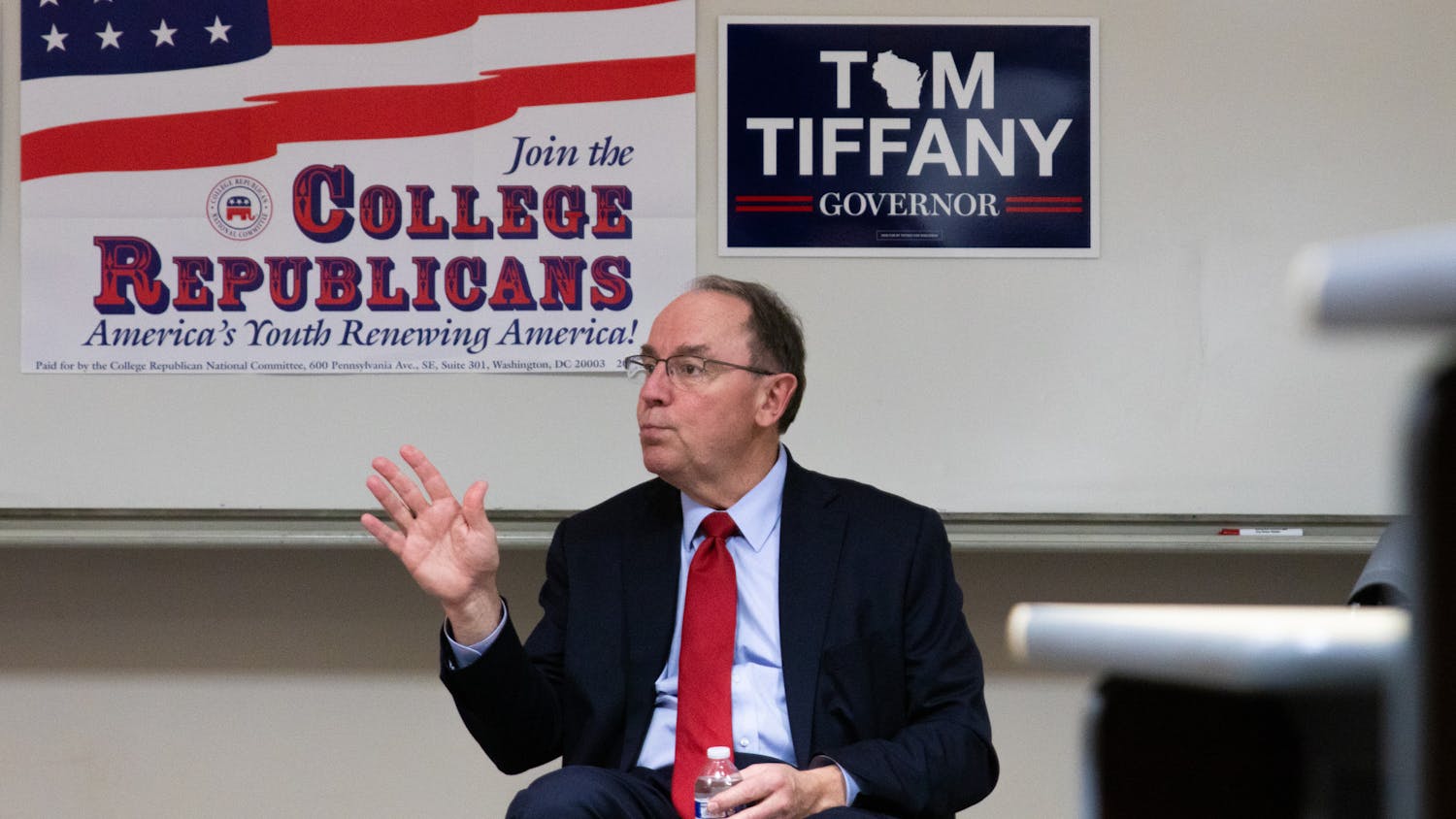In 1894, Richard T. Ely was the head of the UW-Madison's School of Economics, Politics and History. Ely's sociology and economics research on labor-management relations prompted a Wisconsin Board of Regents member to accuse him of being a socialist and teaching \utopian, impractical, or pernicious doctrines."" A national scandal ensued, with some editorialists calling for Ely's resignation. After an official investigation and a three-day hearing, Ely was declared innocent.
The Board of Regents issued the enduring statement: ""We believe that the great state university of Wisconsin should ever encourage that continual and fearless sifting and winnowing by which alone the truth can be found."" In other words, the university should never attempt to censor, limit or interrupt its members' quest for knowledge. These historic words were not only an affirmation of one professor's innocence, but an introduction to the concept of academic freedom. They are also found outside the front entrance of Bascom Hall.
The Ely trial led to the establishment of the American Association of University Professors, whose purpose is best demonstrated with its 1940 Statement on Principles on Academic Freedom and Tenure. One sentence from this proclamation deserves particular consideration: ""Teachers are entitled to freedom in the classroom in discussing their subject, but they should be careful not to introduce into their teaching controversial matter which has no relation to their subject.""
The principle of academic freedom is paramount to the concept of a university, and any violation of these principles necessitates attention. If a professor is introducing ""controversial matters"" unrelated to the subject matter, then the professor is abusing his or her trusted role as an honorable member of the community.
Unfortunately, universities around the country are seriously threatened by the continual violation of these principles. I once had a psychology professor who would pick up the newspaper every morning and lament the actions of President Bush. Politics is one of the most controversial subjects of study and this teacher was certainly not fostering ""an environment of tolerance, civility, awareness, and respect,"" as required by the faculty speech codes. Especially disconcerting was the fact that this was not a political class and there was no forum to disagree with the professor. It was simply the student's bad luck to be subject to these daily diatribes. It is no wonder UW-Madison students are so unashamedly one-sided in their political discussions. The result of the political bias on campus is a growing unchallenged orthodoxy in thinking, a decline in intellectual diversity and a lack of exchange of new ideas.
There are more egregious examples of violations of academic freedom that are overwhelming our universities. Anne Neal, president of the American Council of Trustees and Alumni, recently spoke at a U.S. Senate hearing, and outlined a number of examples. She spoke of ""politically incorrect"" speakers being uninvited to universities, one-sided panels supposedly debating current events and the politicization of teaching in many subjects. Specifically, Henry Kissinger's invitation to speak at the University of Texas-Austin was rescinded because of a ""fringe student group.""
At Columbia University in New York, professors organized multiple six-hour anti-war ""teach-ins"" whose purpose was not to weigh the complex issues concerning military action in Iraq, but rather to indoctrinate students in one point of view.
Concerning the politicization of instruction, David Horowitz of Front Page Magazine reports that students in a criminology class at Colorado University were assigned to write a paper on ""Why George Bush Is A War Criminal."" To make matters worse, one student wrote a paper on ""Why Saddam Hussein is a War Criminal"" and failed the assignment.
One of the biggest failures in the advocacy of academic freedom is that the organization that founded the concept, the AAUP, has twisted the issue into maintaining the status quo. A national student organization, Students for Academic Freedom, advocates an Academic Bill of Rights to promote tolerance and respect for different points of views.
One of the core statements in the bill is that universities ""are obligated to make students aware of a broad range of serious intellectual perspectives, not just the perspectives that correspond to the beliefs of their professors.""
In highly charged rhetoric reminiscent of Ann Coulter or Michael Moore, the AAUP issued a statement condemning the bill. The AAUP believes ""there are already mechanisms in place that protect this principle, and they work well."" At this point, it is the job of the students to research the meaning of academic freedom and to make their own judgment on how well these mechanisms are working.





